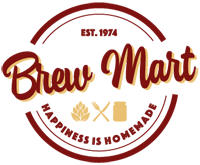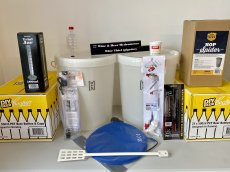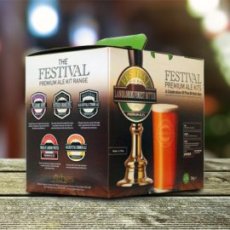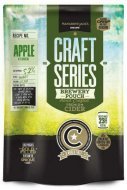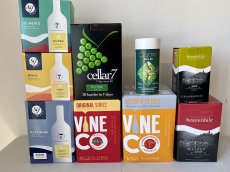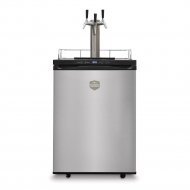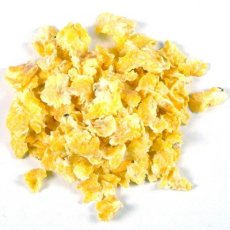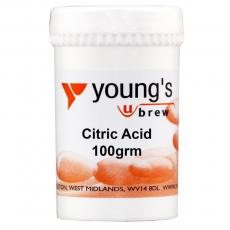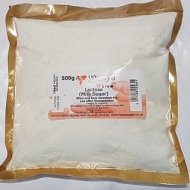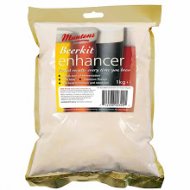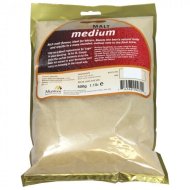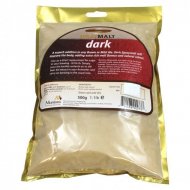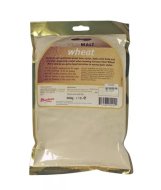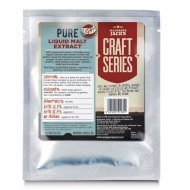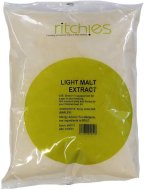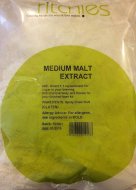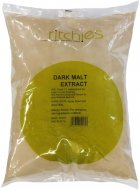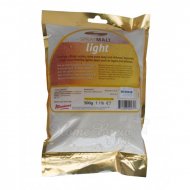Sign up to the Brew Mart newsletter for the latest news, offers & more
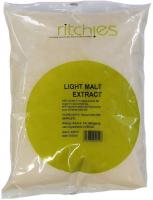
Malt Extracts
WHAT IS MALT EXTRACT?
Malt extract is "concentrated sugar extracted from brewing-grade malted barley." You can buy malt extract in both liquid and dry form.
Liquid malt extract is similar to molasses, whereas dried malt extract is in a fine powder form. Malt extract can differ depending on the grains used when making it.
1kg of dextrose (Brewing Sugar) is roughly equivalent to 1.1 kilograms of dried malt extract and 1.2kg of Liquid malt extract.
WHAT IS THE PROCESS OF MAKING MALT EXTRACT?
Malt extract starts life in much the same way as an all-grain beer. Grains are mashed in the usual way to create wort. The wort is then heated, which causes the water to evaporate and the wort to concentrate.
Many brewers often brew with malt extract alone or malt extract with steeped speciality grains.
Malt extract beers have proved to be brilliant!
At many competitions, they are capable of competing with all-grain beers.
Use malt extracts instead of sugar to give a fuller taste.
If a recipe says 1 kilo of brewing sugar, you can use all sugar or malt extract.
Another idea would be to use 500g brewing sugar and 500g malt extract.
Dry malt extract, liquid malt extract, and beer enhancer for brewing beer will improve the mouthfeel, body and flavour of a beer kit intensively by using the right beer enhancer in place of sugar.
Use extracts to make extract beers using dry or liquid malt extract, which cuts out the mash time and goes straight to the hop boil. Add some steeping grains for extra colour and malty freshness.
Can I brew with liquid malt extract?
Liquid malt extracts are a sticky syrup-like product that provides vital sugars, flavours & aromas for your homebrew. Liquid malt extract can simplify the brewing process, or for more experienced brewers, it can help supplement sugars in a brew or help increase specific gravity.
Does using liquid malt extract instead of sugar when brewing improve a beer kit?
Brew Mart recommends using malt extract with any beer kit instead of sugar to produce the finest homebrewed beer. Use the entire can of liquid malt extract instead of one kilo of sugar or brewing sugar or dried malt. Use light malt extract for lager and very light bitter.
Can you add sugar to homebrew and what are the effects?
- Adding sugar increases the alcohol content.
- Adding sugar during the brewing process can affect the beer's colour, flavour, and body.
- Using corn sugar or dextrose can lighten the beer's body and colour without affecting the beer's flavour profile.
- Adding too much sugar can cause flaws in your brew.
- A typical flaw of excess sugar usage is cider flavours in your beer.
Can you use liquid malt extract instead of dextrose?
As a general rule, you can replace dextrose with an equal mass of light dry malt extract. Dry malt extract is dried wort without the hops, so your beer is more 'authentic.'.
Do you need malt extract to make beer?
The brewer takes crushed malted grains and mashes them to convert starches into fermentable sugar. Malting companies produce the extract that allows homebrewers to skip the conversion process when brewing beer at home. Using Malt extract removes the need for a mash or handling of 10-12 lbs of malted grain.
What is the difference between all-grain and extract brewing?
All Grain Vs Extract: The Basic Difference
In all-grain brewing, the brewer uses boiling water to add the crushed malt/grain to make a mash. Doing this converts the starches into fermentable sugars.
The brewer purchases the extract in either liquid or powder form in extract brewing, equivalent to a mash.
Storing Malt Extract
As with any fresh ingredient, how you store your malt extract will affect its quality and the results of your finished beer.
- You should store dried malt extract away from oxygen and moisture as much as possible.
- You can keep dried malt extract for one year
- Temperatures must be between 10–21 °C (50–70 °F).
- Liquid malt extract is pasteurised.
- It has a shelf life of up to two years.
- Once opened, store any unused malt extract in a new smaller container to eliminate exposure to oxygen.
- Store in a fridge to keep as fresh as possible and use within three months of opening.
HOW DOES BREWING SUGAR AND HOUSEHOLD GRANULATED SUGAR DIFFER?
- Brewing sugar is Dextrose Monohydrate. Using brewing sugar will start a brew quicker and ferment cleaner as it is a single sugar.
- Granulated sugar is sucrose, a type of disaccharide made up of one glucose and one fructose molecule. Granulated sugar must be 'split' by the yeast, producing byproducts and impurities..
Without brewing sugar, there would be no alcohol! The yeast ferments the brewing sugar to produce carbon dioxide and alcohol.
Many beers, cider and wine kits recipes will call for brewing sugar to be added at the primary and secondary fermentation stage.
Updated January 2022
Check out all brew Mart's home brew hints & tips
